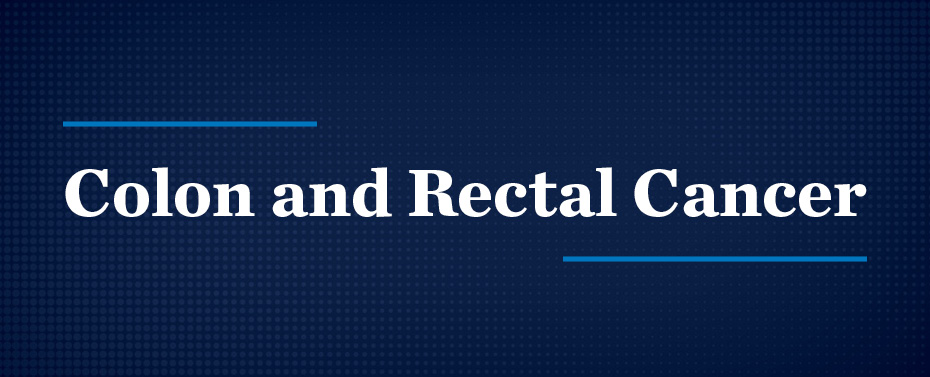Colon and Rectal Cancer

Why Choose Englewood Health for Colon and Rectal Cancer Care?
The oncology experts at The Lefcourt Family Cancer Treatment and Wellness Center have extensive experience diagnosing and treating all major forms of cancer, including colon and rectal cancer.
At Englewood, we can perform even the most complex surgeries, such as rectal cancer or ulcerative colitis surgery, using a minimally invasive approach: robotically or laparoscopically. We have excellent outcomes and very low complication rates. Minimally invasive surgery is easier on the patient because it causes fewer physiological changes and leads to an easier recovery. The surgery is performed using the same principles, regardless of how it’s done: robotically, laparoscopically, or open. With robotic surgery there is less blood loss, greater precision, and a quicker return to normal activities.
Anna Serur, MD, Chief of Colon and Rectal Surgery
Our Cancer Team Approach
We’ve created disease-specific teams made up of different types of doctors specializing in your cancer, as well as a patient navigator and specialists in nutrition, pain and palliative medicine, integrative medicine, genetic counseling, and other supportive services.
Together, these experts review all patient cases to make recommendations for treatment and develop an individualized plan.
We’ve really come a long way in being able to use drugs that specifically target certain aspects of the cancer pathway that not only improve our cancer outcomes but also make therapies more tolerable for the patient. If a patient has advanced or stage IV cancer, for example, our oncology team studies the pathology sample in detail to understand the biology of the tumor and to identify different targets for drug therapy.
Minaxi Jhawer, MD, Chief of Hematology/Oncology
Colon Cancer Prevention and Screening
Colon cancer is the third most common cancer diagnosed for both men and women, and if not detected early, can be fatal. Early colon cancer, when it is most treatable, may have little or no symptoms. Thankfully, there are screening tests that can not only detect colon cancer at its earliest stages, but prevent future cases of by removing precancerous growths called polyps.
Who should be screened for colorectal cancer?
The U.S. Preventive Services Task Force recommends that adults age 45 to 75 get screened for colorectal cancer. If you are older than 75, talk to your doctor about screening. People with family history of colorectal cancer or other factor that increase the risk of colon cancer should also contact their doctor about when to start screening and which tests are appropriate.
New Patients: Making an Appointment
If you have been recently diagnosed with colon or rectal cancer and are looking for care or a second opinion, we are here to help. You can contact us online through our secure form and someone will get back to you. Or call us directly at 201-608-2266.


